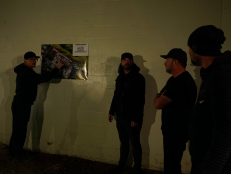Backpacking Primer
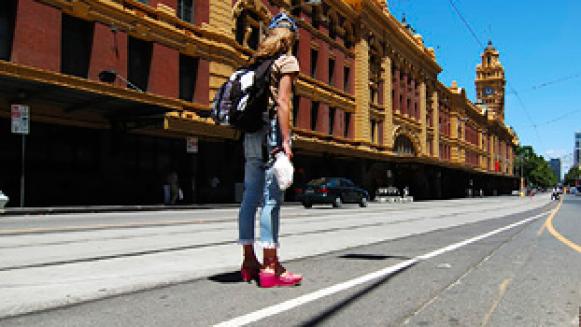
Whether you're bouncing through the modern streets of Western Europe or trudging through the barrios of South America, you'll quickly discover the not-so-enjoyable aspects of backpacking -- hostel showers spitting out sub-zero water, trains departing just as you reach the platform and flip-flops doubling as blister factories when worn on long hikes.
It may seem to go against the true fiber of a wandering soul, but if you want to avoid major backpacker headaches, it's best to plan ahead. This includes everything from booking the right trains to choosing the right gear to making sure you have enough Pepto to mollify an army of diners.
1. The Backpack
Your closest companion while traveling, no matter what your significant other says, is your backpack. After countless miles lugging more than 50 pounds on your shoulders, it eventually becomes a hefty extension of your body. Pick the wrong one, and not only will you leave the country with some corny souvenirs, but a couple of slipped discs and a humpback, as well. The stereotypical image of a seasoned backpacker has him or her lugging a reasonably sized pack on their back -- bedroll/cushion strapped to the top -- and a smaller rucksack on the front for important documents and gadgets.
For the former, size matters -- a lot. Depending on how many of your ratty T-shirts you decide to bring, how many times you want to do laundry and how long your trip is going to be, you'll want something that can take the weight of your belongings while also fitting on the not-so-deep luggage racks of commuter trains.
Invest in a pack that has padded straps, a stowable rain shield and is made of quality material. Also, don't forget to inspect the stitching. If it looks like they're reinforced with single, pencil-thin threads, then you can almost count on the straps splitting mid-trek. A waist and/or chest strap can also be an immense boon by distributing the pack's weight more evenly, reducing stress on the lower back.
Finally, choose side-loading packs over top-loading backpacks. Dressers and closets are a rarity in hostels, so plunging shoulder deep into your pack to dig out a pair of undies can be a major pain. The side-loading version lets you grab your goods with considerably less effort.
2. What to Pack
What you stuff your pack with is almost as important as the type of backpack that you get. Basic clothing aside, be sure to pack at least one waterproof jacket and a sweater. You may be visiting a convection oven of a city like Cordoba, but an unexpected storm or a cool, breezy night will make you glad you tossed those extra layers in the bottom of your pack. A small survival kit of sorts is also a must for any traveler and their overall well-being. One thing it should include is a bottle of over-the-counter antacid/anti-diarrhea meds for that chance encounter with an iffy piece of calamari. While you can find the basics like aspirin and antiseptics in pharmacies, tummy stuff can be tough to track down. Earplugs are also important to have when your hostel roommate decides to serenade you with a nightly nasal operetta. Finally, bring flip-flops for laundry day and for the shower. They're easy to stuff anywhere in your pack and will prove invaluable when confronted with a particularly gross bathtub.
3. The Game Plan
The ultimate way of backpacking -- choosing the next destination on a town-by-town basis -- may seem ideal, but it's also the best way to get stuck in a seedy little hostel near the slums of some city. This is especially true if you plan on traveling during peak seasons, like summer.
The lesson? Plan ahead and book accommodations a few weeks in advance. Hostels these days are packed with gaggles of well-prepared hippies and drunken college kids who made their reservations thanks to popular websites like hostels.com and hostelworld.com. Combined with the advent of hostel mini-chains, blurring the line between hostel and hotel, it's now even harder to snag an open bed in a well-reviewed establishment.
Finding your way to that hostel can bring another set of worries and questions. Should I fly or do I use the rail system? How do I get from the airport or train station to where I'm staying?
First, only fly if your destination is a major city or if it is a considerable distance away from your starting point. In general, airports are farther from the hearts of their cities than train stations, so expect to pay expensive cab fares or use complex subway routes. So the cheap airfare you found with a budget airline may be quite deceiving. Many budget airlines offer heavily discounted tickets, because they often use airports that are smaller and even more out of the way than major airlines. Taxi fare and train tickets from these outer hubs to the city can negate the amount you save. Be sure to research your arrival airport before purchasing tickets.
Trains are an interesting alternative if where you're going is only a few hundred miles away. Many of the passengers are locals and the views of the towns and farms whizzing by are much better than the ones you'll find from 30,000 feet above.
At your destination, avoid stumbling from the unfamiliar train station or airport and feeling hopelessly lost by going online prior to your arrival and researching city and subway-system maps, so you can plan the small trek from your point of arrival to your hostel door.
4. Staying Connected
The smartest thing you can do once you reach your destination, especially if traveling solo, is to connect with a few folks staying in the same hostel. It seems like a no-brainer, especially when you're looking for someone to party with, but getting a group together to explore the town or to share a sleeper car is much safer and more fun than going it alone.
Also consider renting a cell phone while overseas. Not only can you contact the police or a hospital in case of an emergency, but you can keep in touch with newfound friends, texting being the preferred method of communication since it's much cheaper and many phones utilize VoIP (Voice-over-Internet Protocol) programs like Skype. Keep new friends' phone numbers, and you might not even have to rely on hostels for your next trek -- a free couch may be just a few texts away.
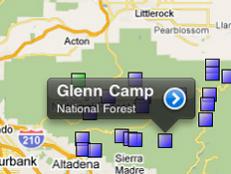
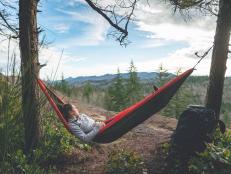
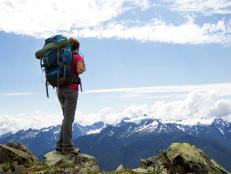
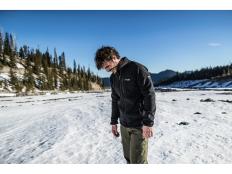

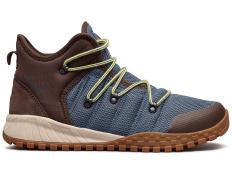





















.jpg.rend.hgtvcom.231.174.suffix/1674758726773.jpeg)









